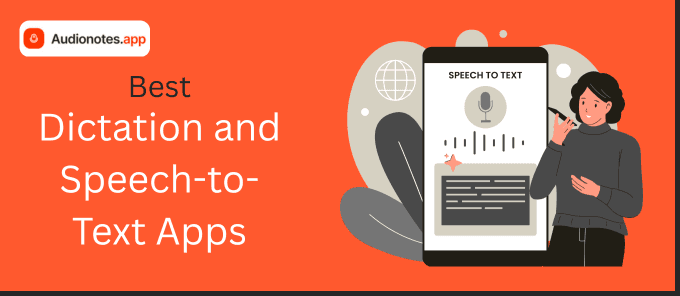15 Best Dictation Software in 2026 (Free & Paid)
Sep 22, 2025
Dictation software can dramatically increase writing speed, most people type around 35–40 words per minute, while speaking can exceed 120. For anyone who writes frequently, emails, documents, meeting notes, or long-form content, dictation apps make it possible to capture more ideas in less time, without the physical strain of typing.
With speech recognition accuracy improving and AI-powered models reducing error rates, dictation software is now reliable enough for everyday work. After testing leading tools, we’ve shortlisted the best dictation software options to help you choose the right one for your workflow.
The best dictation Software
AudioNotes - AI-powered dictation with smart summaries and notes
Otter - Real-time meeting dictation and collaboration
Dragon by Nuance - High-accuracy, professional-grade dictation
Google Docs Voice Typing - Free dictation inside Google Docs
Apple Dictation - Built-in dictation for Apple devices
Windows Voice Access - Free dictation and voice control on Windows
Gboard - Mobile dictation on Android and iOS
SpeechTexter - Browser-based dictation with language support
Notta - Multilingual dictation and transcription
What is a Dictation Software?
Dictation software is a speech-to-text tool that converts spoken words into written text using a microphone. It allows users to write hands-free and faster than typing, and often includes features like voice commands, punctuation, and basic formatting to streamline writing and transcription tasks.
15 Best Dictation Software
Dictation Tool | Compatibility | Pricing | Supported Languages | Best For |
|---|---|---|---|---|
Audionotes | iOS, Web, WhatsApp, Chrome Extension | Free and paid plans | 30+ languages (with accent recognition) | Students, professionals, ADHD users |
Apple Dictation | macOS, iOS, iPadOS | Free | 66 languages | Apple ecosystem users, quick dictation |
Windows Speech Recognition | Windows 10, Windows 11 | Free | 7+ languages with accents | Windows users, accessibility purposes |
Gboard | Android, iOS | Free | 900+ languages | Mobile users, multitasking, quick typing |
Google Docs Voice Typing | Chrome browser, Web, Android, iOS | Free | 100+ languages | Document creation, collaborative teams |
Granola | macOS, Windows, iOS | Subscription plans | Primarily English, limited other languages | Teams and meetings, privacy-conscious users |
Dragon Anywhere | iOS, Android | $14.99/month or $149.99/year | English, German | Legal, medical professionals, authors |
Otter.ai | Web, iOS, Android | Free and paid (starting $16.99/month) | English, limited support for others | Teams, classrooms, meetings |
Speechnotes | Web, Android | Free with ads, paid removes ads | 30+ languages | Writers, students, quick note-taking |
Braina | Windows, companion mobile mic app | Free Lite; Pro $79/year; Lifetime $199 | 100+ languages | Business users, researchers |
Sonix | Web | Paid subscription tiers | 50+ languages | Media professionals, researchers, team projects |
Rev | Web, iOS, Android | Pay-as-you-go or subscription | English, Spanish | Podcasters, researchers, long transcription projects |
Temi | Web, iOS, Android | $0.25 per minute (pay-as-you-go) | English only | Students, podcasters, freelancers |
Notta.ai | Web, Chrome, iOS, Android | Free and paid (from $13/month) | 58 languages, bilingual transcription | Remote teams, collaboration, translation |
Dictation.io | Web (Chrome) | Free | 30+ languages | Quick browser-based dictation, privacy needs |
Audionotes
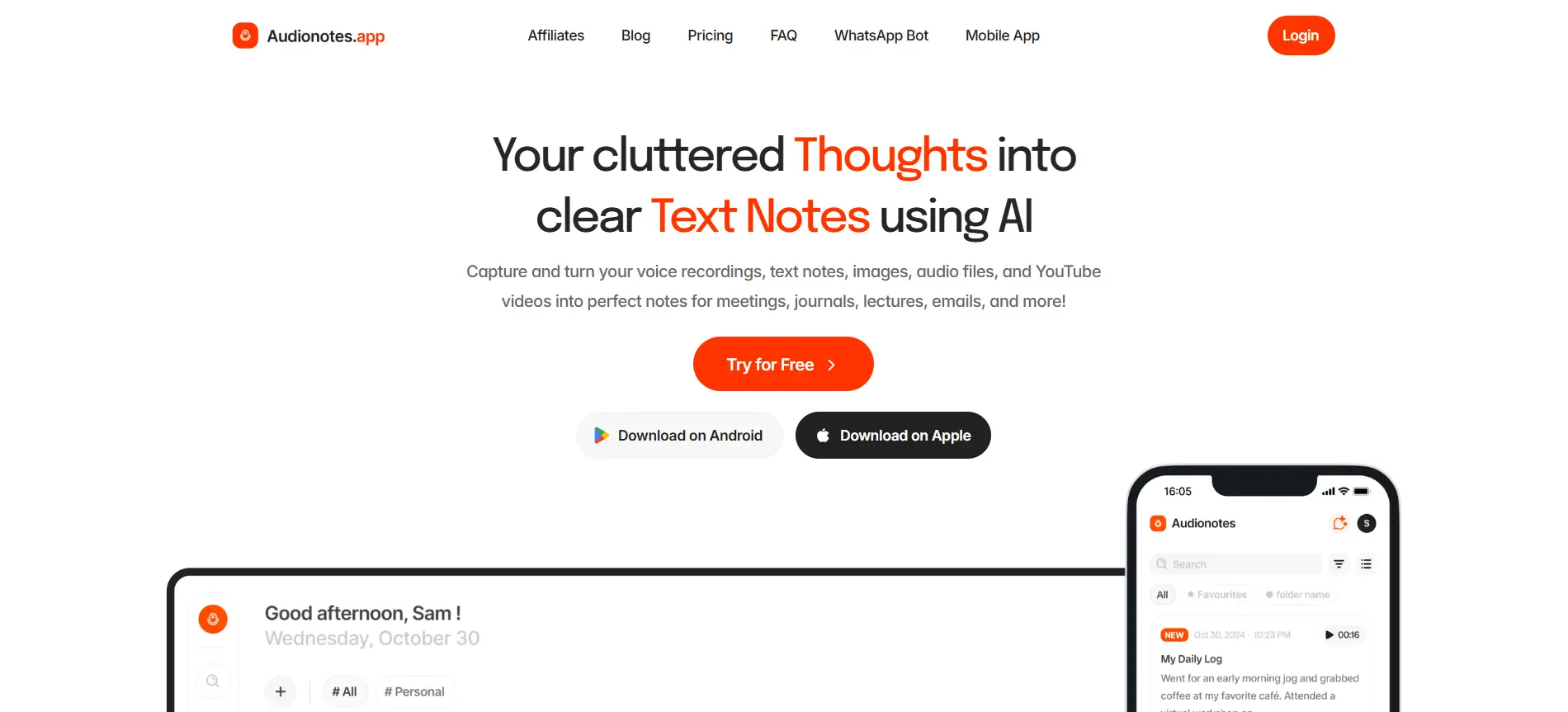
Audionotes is more than just a speech-to-text tool. It’s an AI-powered note-taking assistant that turns voice recordings, typed text, images, and even YouTube videos into clean, structured notes. What sets it apart is its ability to not just transcribe, but also summarize, organize, and connect your content across different platforms.
Whether you're sitting in a lecture, recording a meeting, brainstorming ideas, or creating content, Audionotes helps you stay on top of things by turning your thoughts into clear, actionable notes. It's also a solid choice for professionals in fields like medicine and law, where accuracy and detail matter most.
Key Features:
Transcribe voice, videos, images, and text
Summarise into notes, meeting minutes, emails, and quizzes
Use your own prompts or templates for custom outputs
WhatsApp bot, Notion and Zapier integration
Cross-platform sync with full privacy
Supports 30+ languages
Smart publishing, link sharing, and chat with notes
Pros:
Handles almost any input and turns it into clean, usable notes
Strong privacy, no data used for AI training
Excellent integrations for workflow automation
Helpful for students with ADHD or learning challenges
Cons:
Takes a little time to learn all the features
Free plan has limits on recording time and uploads
Some advanced tools work better on desktop
Pricing:
Starts free, with premium plans from $3.99/week to $99.99/year
Best for:
Students who want to turn lectures or YouTube content into summaries
Professionals and creators who need organised content quickly
Anyone who wants full control and privacy while taking notes
Platforms Available:
Web, iOS, iPad, Mac (Apple Silicon)
Chrome Extension
WhatsApp Bot
Notion and Zapier
API and webhook options
Unleash the power of Voice Notes with AI Try now for free
Apple Dictation
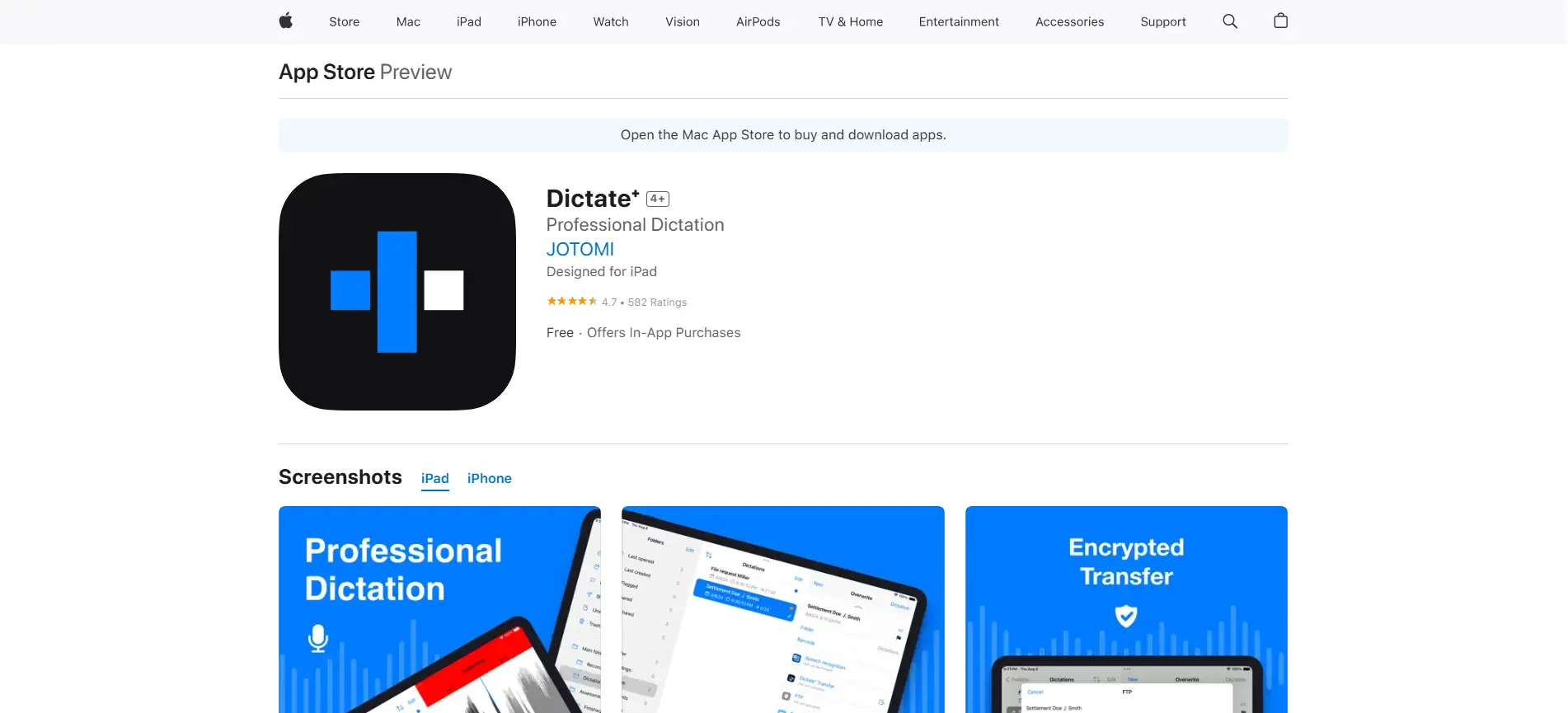
If you use an iPhone, iPad, or Mac, Apple Dictation is already built in. It lets you turn your speech into text instantly, and you don’t even need to download anything. It supports 66 languages and works offline for many users, which makes it super handy. What stands out is how well it works with Voice Control, so you can automate things like adding punctuation, making new paragraphs, or even taking screenshots, just by speaking.
Key Features:
Real-time dictation with punctuation and formatting
Works offline for short durations
Supports 66 languages, including many regional accents
Voice Control integration for extra automation
Pros:
Free and built into Apple devices
Doesn’t send your data to external servers
Very accurate with regular speech
Cons:
Only available on Apple devices
Doesn’t offer much room for customisation
Might not recognise technical or rare terms without practice
Pricing:
Free on iOS, macOS, and iPadOS
Best for:
Apple users who want a simple, private, and reliable dictation tool
Windows 11 Speech Recognition
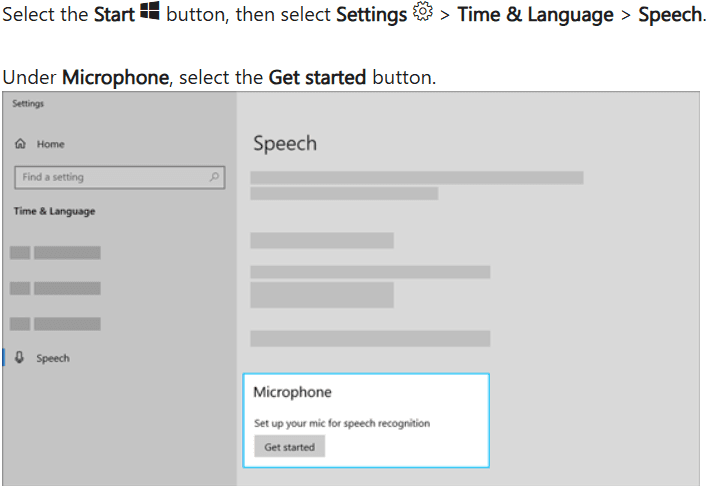
If you're a Windows user, this one’s already available in your system settings. It lets you control your computer, open apps, and dictate text without touching the keyboard. Since it works completely offline, your data stays on your device. With the recent Voice Access update, it’s become a lot more accurate and easier to use for both everyday tasks and accessibility.
Key Features:
Full voice control and dictation
Offline usage for privacy
Works in multiple languages and accents
Connects easily with Microsoft Office apps
Voice commands for formatting and navigation
Pros:
Comes Preinstalled in Windows
Safe and private due to on-device processing
Especially useful for accessibility
Cons:
Accuracy may vary if you're not using a standard accent
Beginners might take time to learn voice commands
Interface could be more user-friendly
Pricing:
Free with Windows 10 and 11
Best for:
Windows users who want hands-free control and offline speech recognition
Gboard
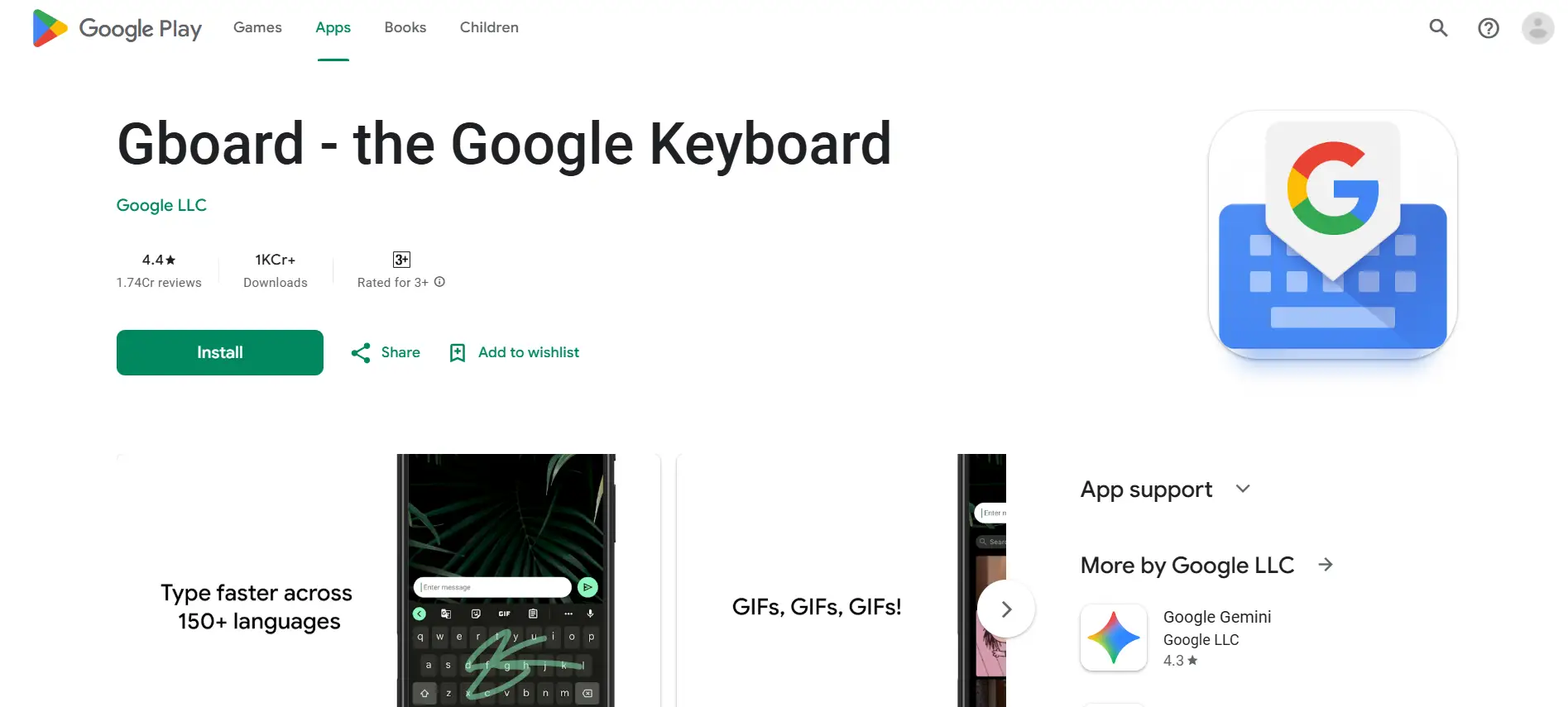
Gboard is Google’s keyboard app for mobile, and its voice typing feature is fast and reliable. You just tap the mic and start talking. It supports over 900 languages, and works inside any app where you’d normally type. It’s packed with features like AI-powered suggestions, glide typing, and even built-in search and translation.
Key Features:
Voice typing with one tap
Smart autocorrect and text suggestions
Supports over 900 languages
Custom emojis, GIFs, and stickers
Built-in translator and search
Pros:
Completely free and easy to use
Works with most apps on Android and iOS
Multilingual support is impressive
Cons:
Works only within mobile apps
Clipboard sync between devices is limited
Pricing:
Free
Best for:
Mobile users who want quick dictation while messaging, emailing, or multitasking
Google Docs Voice Typing
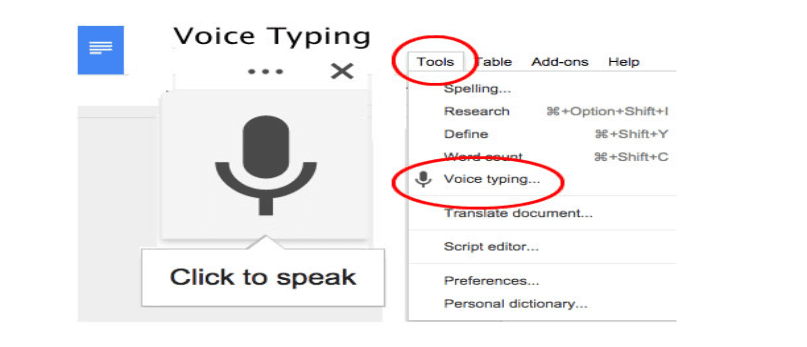
If you write a lot in Google Docs, this built-in feature can really help you get your ideas down faster. Just activate the mic and start speaking. It types in real time and also follows voice commands for punctuation and formatting. It’s easy to use and works well for anyone who already uses Google Workspace.
Key Features:
Voice typing directly in Google Docs or Slides
Voice commands for punctuation and layout
Works with multiple languages and accents
Requires internet and a Google account
Pros:
Free and built into Google Docs
Great for quick document creation
Beginner-friendly interface
Cons:
Needs an internet connection to work
Not as customisable as some other tools
Pricing:
Free (with a Google account)
Best for:
Students, remote teams, and content creators using Google Workspace
Granola
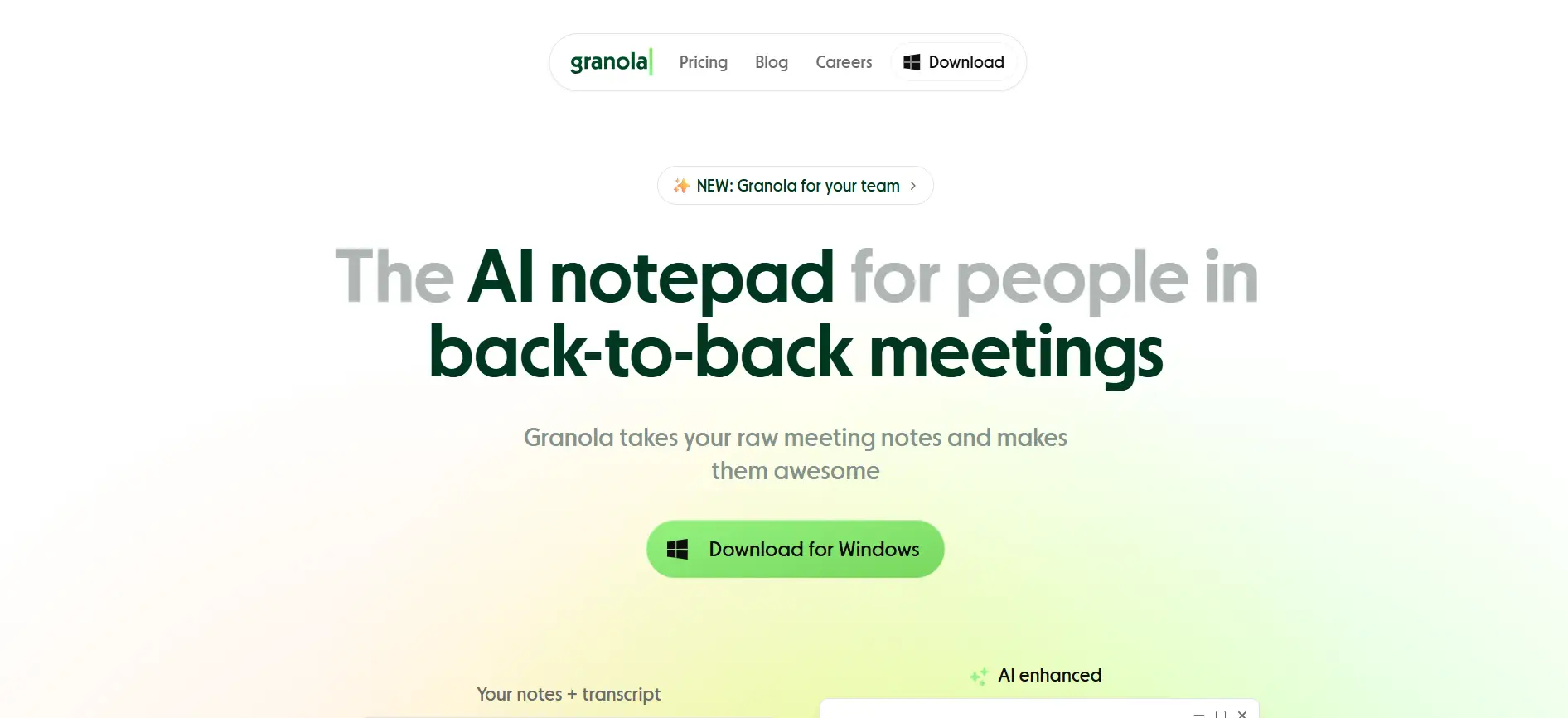
Granola is different from your usual meeting recorder. There are no bots joining your calls. Instead, it runs in the background, recording and summarising your meetings quietly. It blends AI and human input to give you clean, actionable notes. It also stands out for its privacy-first approach, with no audio or video stored, and full GDPR compliance. It’s especially useful for founders, small teams, and anyone who wants a distraction-free, secure note-taking experience.
Key Features:
Silent recording with no bot presence
Combines human and AI notes
Instant summaries and action items
Identifies who said what
Privacy-focused, with calendar sync
Pros:
Meetings stay natural since there are no bot interruptions
Custom templates and detailed summaries
Regular updates and user feedback-driven features
Cons:
No Android or browser version yet
Speaker learning could be better
Best For:
Professionals and teams that value privacy and minimal disruption
Platforms:
macOS, Windows, iOS
Dragon Anywhere (Nuance)
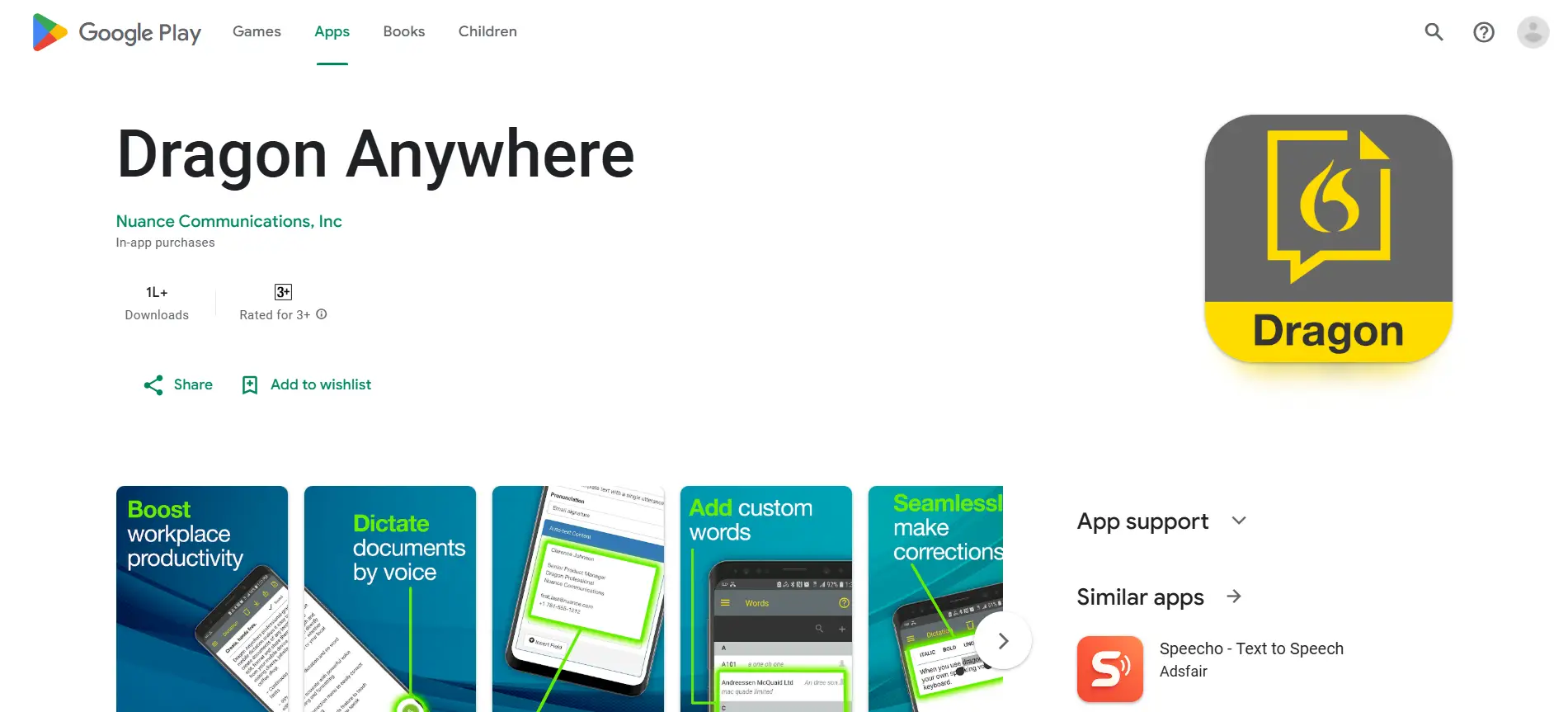
Dragon Anywhere is built for professionals who need detailed, accurate dictation on the go. You can speak as long as you want and create full documents without limits. It also lets you add custom voice commands and vocabulary, which makes it ideal for legal, medical, or technical use. You’ll need an internet connection, but it offers top-notch privacy and syncing with desktop Dragon apps.
Key Features:
No time or length limit on dictation
Create templates and custom commands
Recognises specific industry terms
Syncs across mobile and desktop apps
Keeps your data encrypted and secure
Pros:
Extremely accurate, even with complex terms
Works well for busy professionals
Lets you go hands-free for long writing tasks
Cons:
No free plan
Needs stable internet to function
Occasional technical issues reported
Pricing:
$14.99/month or $149.99/year
Best For:
Lawyers, doctors, writers, and professionals who rely on voice
Platforms:
iOS, Android
Otter.ai
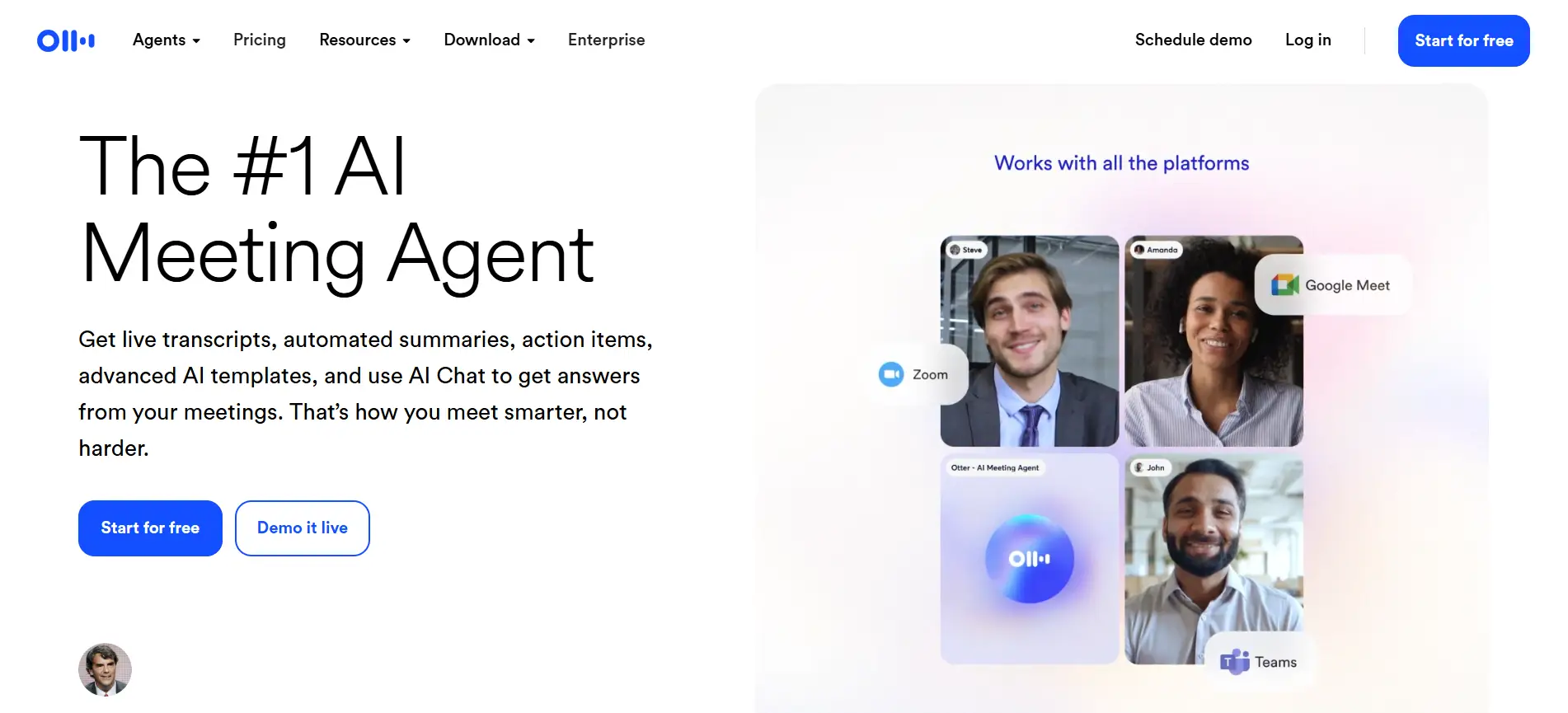
Otter.ai helps you turn meetings into written notes with very little effort. It records live, identifies who’s speaking, and creates summaries you can review later. You can connect it with tools like Zoom, Google Meet, and Notion to build a full workflow. It’s especially helpful if your team runs lots of meetings and you want to focus on listening instead of writing everything down.
Key Features:
Real-time transcription and speaker tagging
Automatically generates summaries and to-dos
Works with major video platforms and calendars
Clean, searchable transcript layout
Pros:
Easy to use, with strong app integrations
Free plan available for casual use
Great for team collaboration
Cons:
Sometimes misses words or gets speakers wrong
Some features are limited in free or lower-tier plans
Pricing:
Free plan available; paid plans start at $16.99 per user/month
Best For:
Teams, content managers, and meeting-heavy roles
Platforms:
Web, Android, iOS
Read More: 9 Best Otter AI Alternatives
Speechnotes
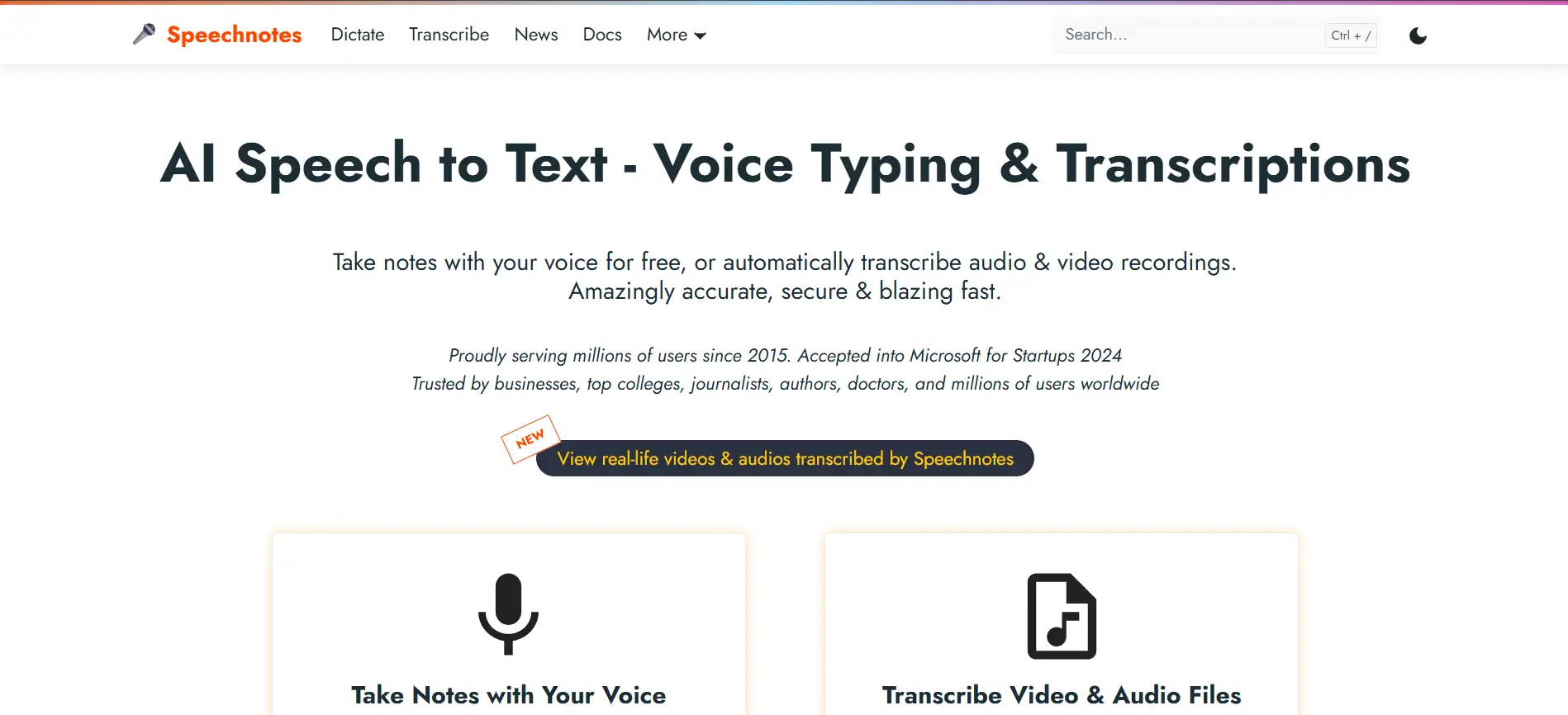
Speechnotes is a quick and simple tool if you just want to start talking and get your words on the screen. It’s designed for live note-taking, class notes, or interviews. You can also upload audio for transcription. It’s very straightforward to use and great for when you need to focus on the content without getting distracted by too many options.
Key Features:
Real-time dictation and audio upload
Timestamps for tracking important parts
Voice commands for punctuation
Works on both web and mobile
Pros:
Free and easy for anyone to start using
Doesn’t take long to learn
Good for fast tasks or short projects
Cons:
Struggles with complex or noisy audio
No AI summaries or multi-speaker tools
Ads appear in the free version
Pricing:
Free (with ads); paid version removes ads
Best For:
Writers, students, or interviewers who need basic transcription
Platforms:
Web, Android
Braina
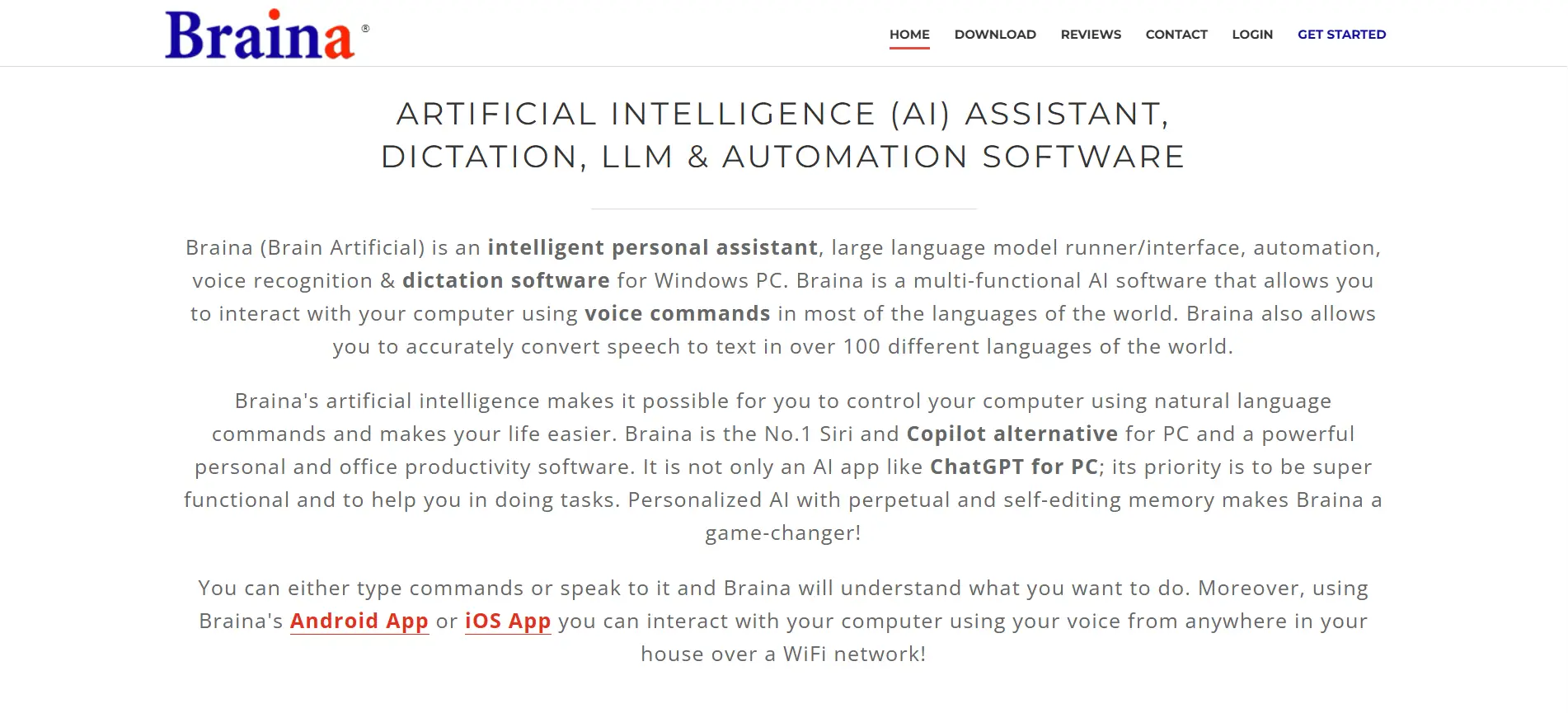
Braina is a powerful speech recognition tool designed for Windows users who want more than just dictation. You can control your computer, search the web, set reminders, and even use your phone as a microphone. It supports over 100 languages and works well even in noisy environments. While the design feels a bit outdated, it’s packed with features that make it a great pick for power users.
Key Features:
Speech-to-text in 100+ languages
Can be used as a personal assistant
Customise vocabulary and responses
Use your phone as a wireless mic
Controls desktop apps with your voice
Pros:
Very high accuracy
Good for automation and complex tasks
Handles background noise well
Cons:
Interface looks old-fashioned
No official Mac version
Free version supports only English
Pricing:
Free Lite version (English only); Pro costs $79/year or $199 one-time
Best For:
Tech-savvy Windows users, researchers, and businesses
Platforms:
Windows, Android, iOS (mic app only)
Sonix
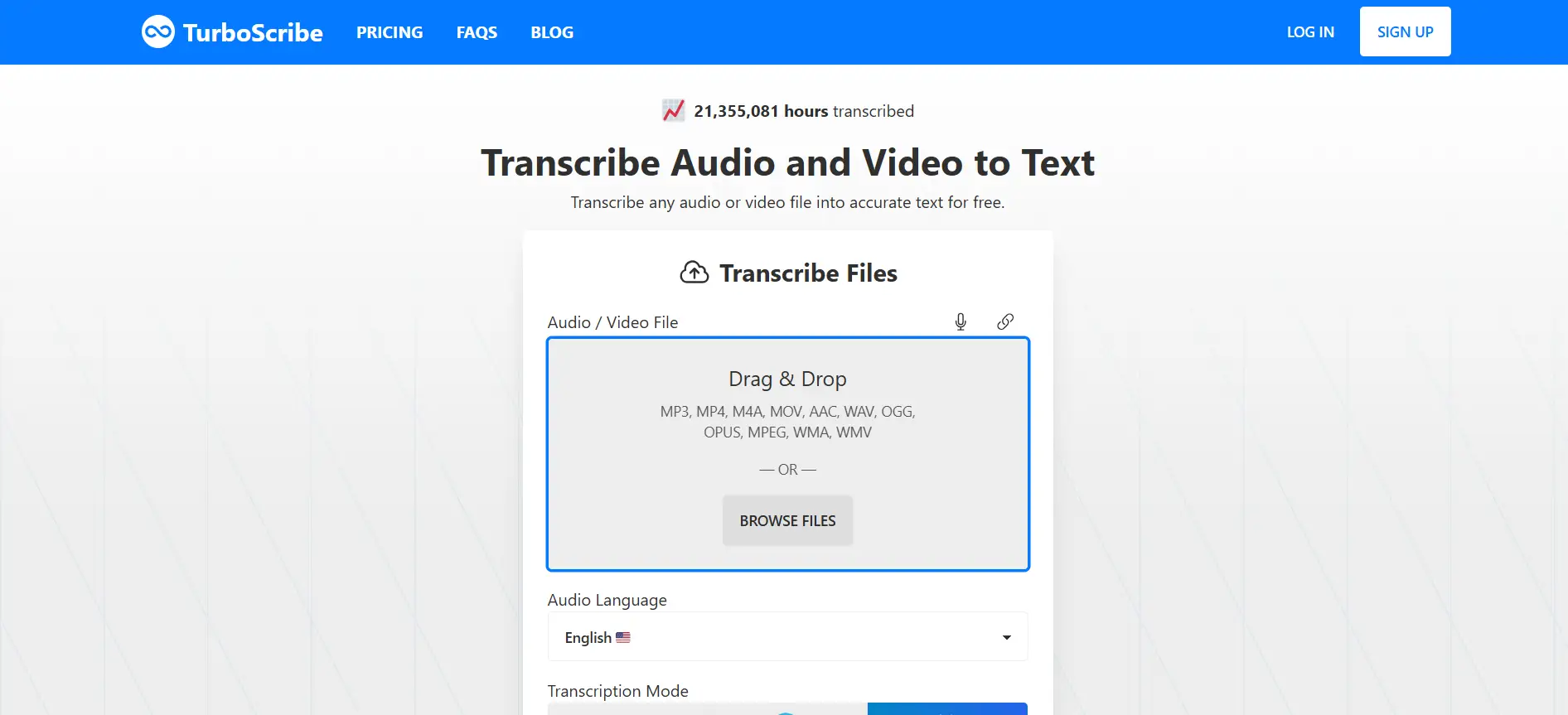
If you need serious transcription power for work or research, Sonix is built for that. It gives highly accurate transcripts (up to 99%), labels speakers clearly, and even shows the tone and topics in conversations. It’s trusted by teams, media professionals, and researchers who want secure, professional results without a lot of cleanup.
Key Features:
Up to 99% accurate transcription
Detects and labels different speakers
Creates summaries and detects sentiment or topics
Secure with AES-256 encryption and SOC 2 compliance
Offers tools for collaboration and app integrations
Pros:
Keeps your data safe and private
Ready to use for teams and companies
Minimal editing needed
Cons:
Not cheap
May take time to learn if you're new to transcription tools
Pricing:
Custom pricing for enterprise plans, $16 for Premium
Best for:
Teams, media professionals, and researchers who want top-quality transcripts
Platforms:
Web-based
Rev Voice Recorder & Transcription
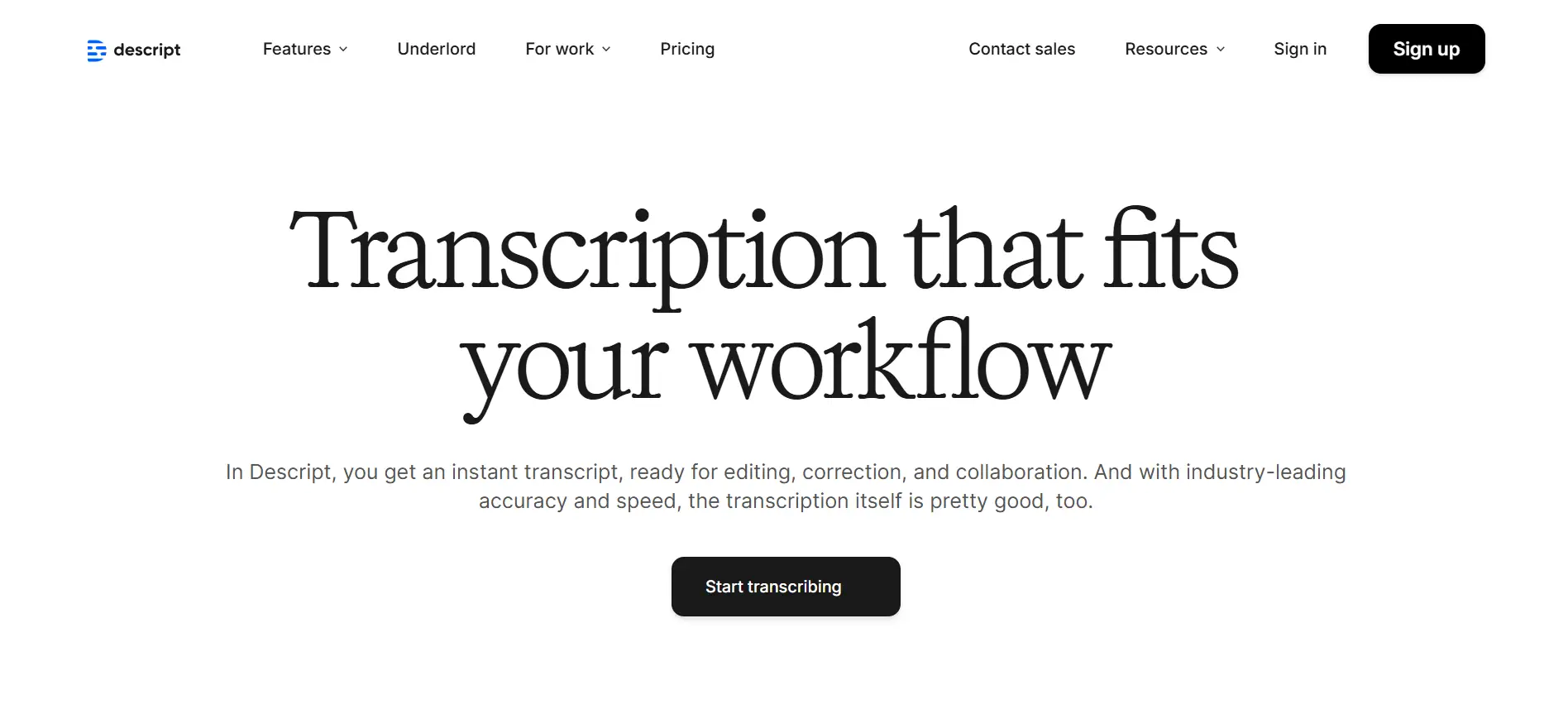
Rev gives you both AI and human transcription options. If accuracy is your priority, especially with multiple speakers or accents, this tool is a reliable pick. You can record directly in the app, label speakers, and get time-coded transcripts. It's popular among podcasters and researchers who need fast, clean, and searchable text.
Key Features:
Choose between AI and human transcription
Time-stamped transcripts with speaker labels
Simple editing tools
Works on mobile and desktop
Pros:
Handles various accents well
Flexible pricing with no long-term commitment
Great for longer projects
Cons:
Focused mainly on English
AI accuracy depends on sound quality
Pricing:
Starts at $9.99 per user/month for Annual Plans going up to $20.99 per user/month for Pro plan. Custom pricing for enterprise.
Best for:
Podcasters, students, and researchers who want flexible and accurate transcripts
Platforms:
Web, iOS, Android
Temi
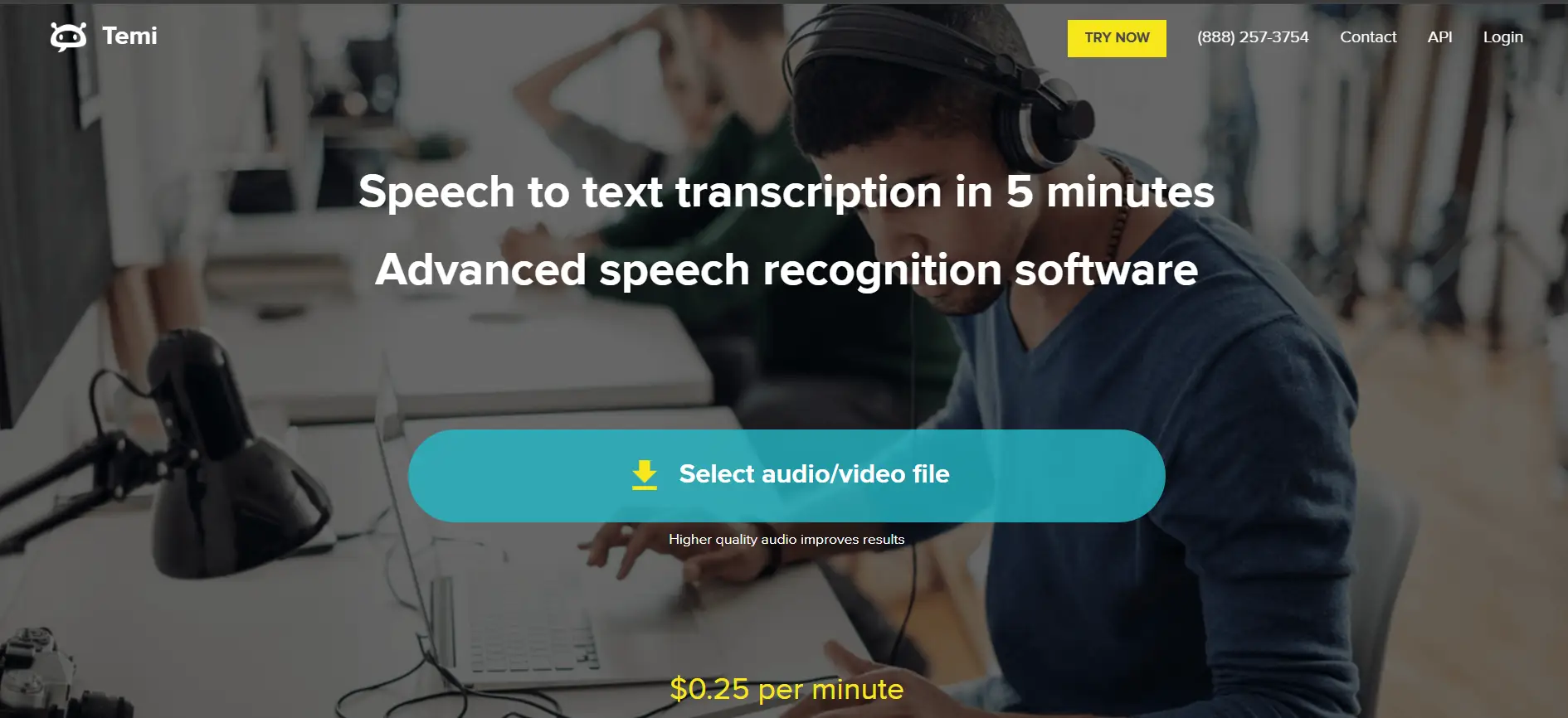
Temi is great if you want a quick, no-fuss transcription service. It uses AI to transcribe with around 90 to 95 percent accuracy when your audio is clear. You can upload files, get timestamps, label speakers, and edit directly in the browser. It’s especially useful for freelancers, students, or anyone with smaller projects.
Key Features:
Quick AI transcription with timestamps
Detects different speakers
Built-in editor for transcripts
Supports various file formats
Works with Zapier and has an API
Pros:
Very affordable
Fast turnaround
Easy to export transcripts
Cons:
English only
Doesn’t work for live meetings
Lacks advanced features like summaries or analytics
Pricing:
$0.25 per audio minute, no subscription required
Best for:
Freelancers, students, and podcasters who need fast and affordable transcripts
Platforms:
Web, iOS, Android
Notta.ai
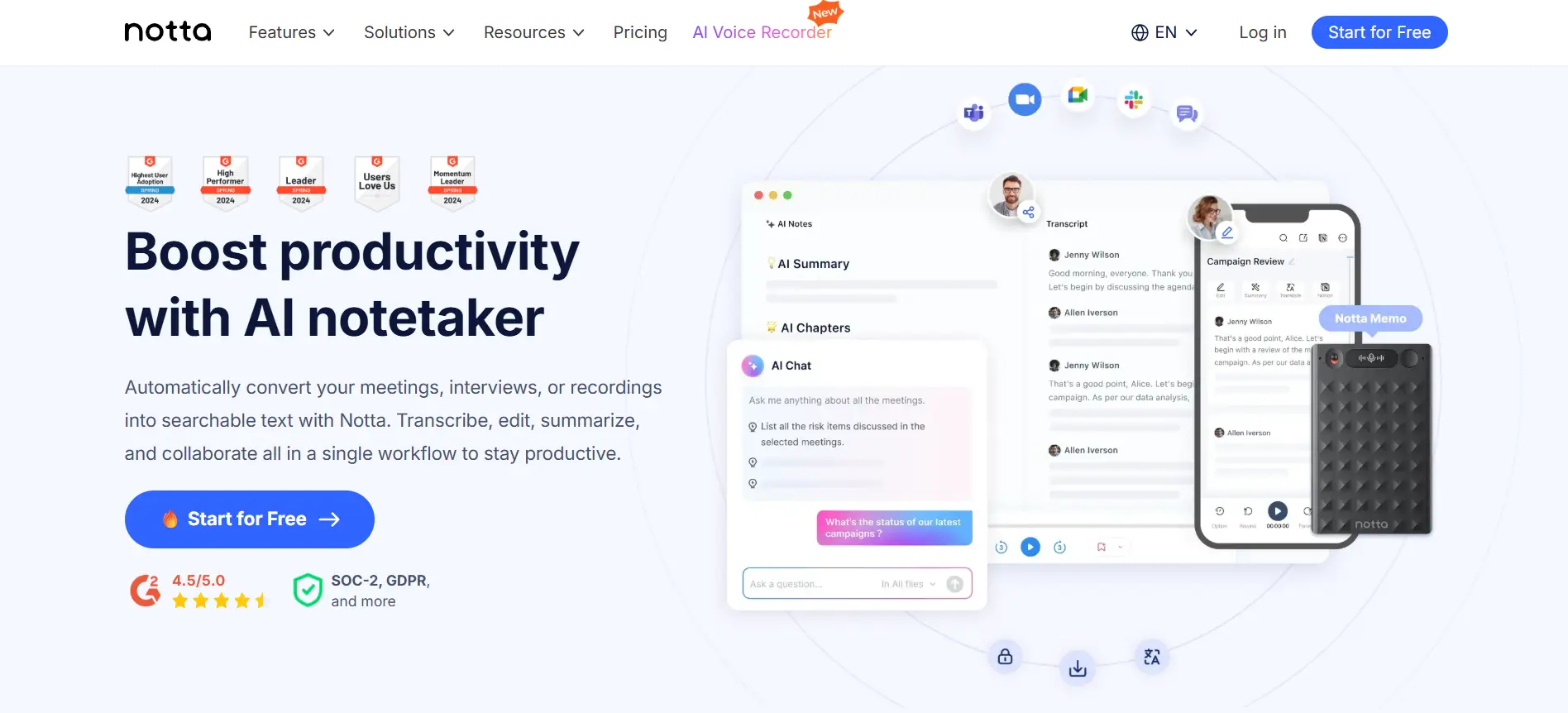
Notta.ai is built for teams that work across languages and platforms. It can transcribe live meetings or uploaded files, add speaker names, and even create AI summaries or mind maps. You can also schedule meetings, translate content, and use a smart chatbot to ask questions about your notes. This is a strong option for international and remote teams who want more than just basic transcripts.
Key Features:
Real-time and recorded transcription
Built-in summarizer and mind map generator
Speaker labels and timestamps
Supports 58 languages
Meeting scheduler and Chrome extension
Pros:
Fast and accurate for live or recorded content
Designed for remote collaboration
Smart chatbot adds extra support
Cons:
Free plan has feature limits
Mobile version is not as strong as the web version
Pricing:
Free plan available; paid plans start around $13/month
Best for:
Remote teams, international companies, and users who want more than just transcription
Platforms:
Web, Chrome extension, iOS, Android
Dictation.io
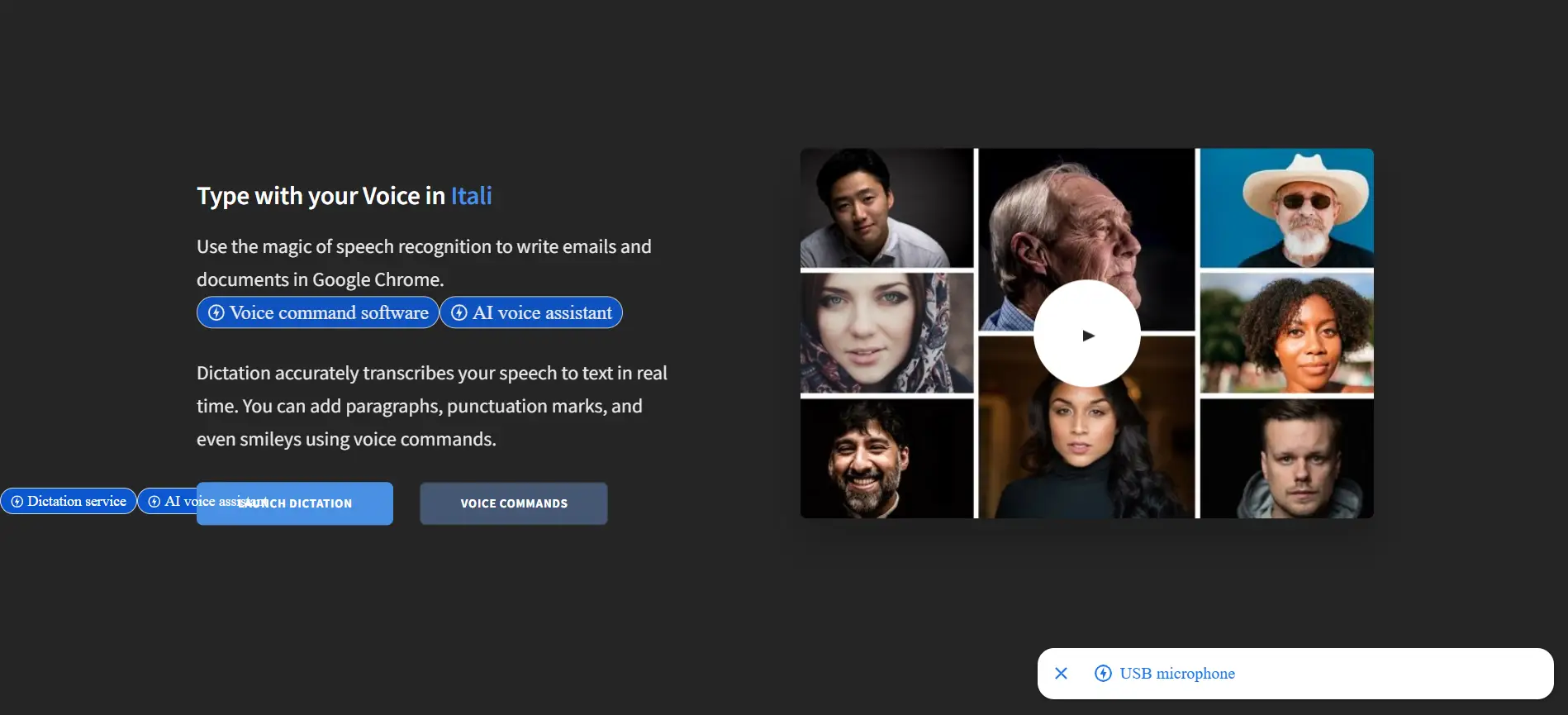
If you just want something simple and free, Dictation.io is worth a look. It runs straight from your Chrome browser and uses Google Speech Recognition to transcribe as you speak. Nothing gets saved on the cloud, so your content stays private. It's a good tool for writing short notes, messages, or even emails using your voice.
Key Features:
Real-time voice-to-text in browser
Supports multiple languages
Simple voice commands for punctuation and formatting
Works without storing data online
Pros:
Completely free
Fast and accurate for short tasks
Keeps your data local and private
Cons:
No mobile app
No advanced features like speaker labeling or analytics
Pricing:
Free
Best for:
Anyone who needs quick voice dictation on a desktop browser
Platforms:
Web (Chrome browser)
What to Look for in a Dictation App (Buying Guide Section)
When you're picking a dictation app, there are a few things you’ll want to keep in mind to make sure it fits your needs and works smoothly. Here’s what to look for:
Accuracy That Actually Works for You
The first thing you need is solid accuracy. The app should understand your voice clearly, even if you have an accent or there's some background noise. A good dictation tool won’t mess up your words just because someone coughed nearby or you’re not speaking in an American accent.
Real-Time vs Post-Recording Transcription
Some apps type out your words as you speak. Others transcribe everything after you're done recording. Think about what works better for your workflow. If you like to see words appear instantly, go for real-time transcription. If you prefer speaking freely and editing later, post-recording options might suit you better.
Easy Integration With Your Other Tools
If you use Google Docs, Microsoft Word, or CRM tools like Salesforce, choose an app that connects well with them. This saves you from copying and pasting your notes every time and keeps your work organized in one place.
Support for Multiple Languages
If you speak or work in more than one language, check if the app supports it. Multilingual support makes your life easier, especially if you're switching between languages in meetings or while working with clients.
Works Across All Your Devices
Make sure the app runs on whatever devices you use.
Know What You're Paying For
Some apps offer basic features for free but lock useful tools behind a paid plan. Look at what you’re getting in each tier and decide if the paid version gives you enough value for your money.
Privacy and Data Security
You're trusting the app with your voice and possibly sensitive information. Check how your data is stored and whether it’s encrypted. A reliable app will always put your privacy first.
Unleash the power of Voice Notes with AI Try now for free
Frequently Asked Questions (FAQs)
What is a dictation software?
Dictation software is a speech-to-text tool that turns spoken words into written text, enabling faster, hands-free writing with optional voice commands and formatting support.
How accurate are dictation apps compared to manual typing?
It depends on the app and your environment, but top-rated apps can reach about 90 to 95% accuracy when conditions are good. If you speak clearly and there's not much background noise, some apps can even be faster and more accurate than typing.
Are dictation apps free to use?
Yes, many are. Apps like Gboard and Google Docs Voice Typing are free and easy to use. However, if you need extra features or better accuracy, you might want to look at premium versions. Free versions often come with some limits on how much you can use or what features are included.
Do these apps work offline or require an internet connection?
Some apps like Apple Dictation (in basic mode) or Windows Speech Recognition can work without internet. Others, like Otter.ai or Google Docs Voice Typing, need an internet connection because they process speech through cloud services. Offline tools usually come with fewer features or slightly lower accuracy.
Can I use dictation apps in multiple languages?
Yes, most of them support many languages like English, Spanish, French, and German. Some, like Google Gboard and Braina, offer over 100 languages. Just make sure to check the app's language options before you choose one.
Do I need a special microphone for dictation apps?
Not really. Most apps work fine with the built-in mic on your phone or laptop. But if you're working in a noisy place or want better results, using a good external mic, headset, or even AirPods can help a lot by reducing background noise.
Do dictation apps require internet to work?
Some do, and some don’t. Tools like Windows Speech Recognition or Dragon Anywhere work offline. But many advanced apps rely on cloud-based processing, so they need internet for the best accuracy and full features.
Can dictation apps be used on both iOS and Android?
Yes, most of the popular ones are available on both platforms. Just keep in mind that some apps like Apple Dictation only work on iOS devices.
Do these apps work with Bluetooth headsets or AirPods?
Yes, they do. Most dictation tools support Bluetooth mics and headsets. In fact, using a Bluetooth device in a noisy setting can improve accuracy. Just make sure your headset has decent microphone quality and some noise cancellation.
How do I improve the accuracy of dictation apps?
Try speaking slowly and clearly, keep background noise low, and use a reliable mic. If the app allows training, take time to do it. Also, sticking to supported languages and accents can improve results over time.
Can I dictate punctuation and commands like "new paragraph"?
Yes, most dictation tools let you speak formatting commands. If you say things like “comma,” “period,” or “new paragraph,” the app will add them for you. Apps like Dragon Anywhere or Otter.ai offer more advanced command options for editing without touching the keyboard.

